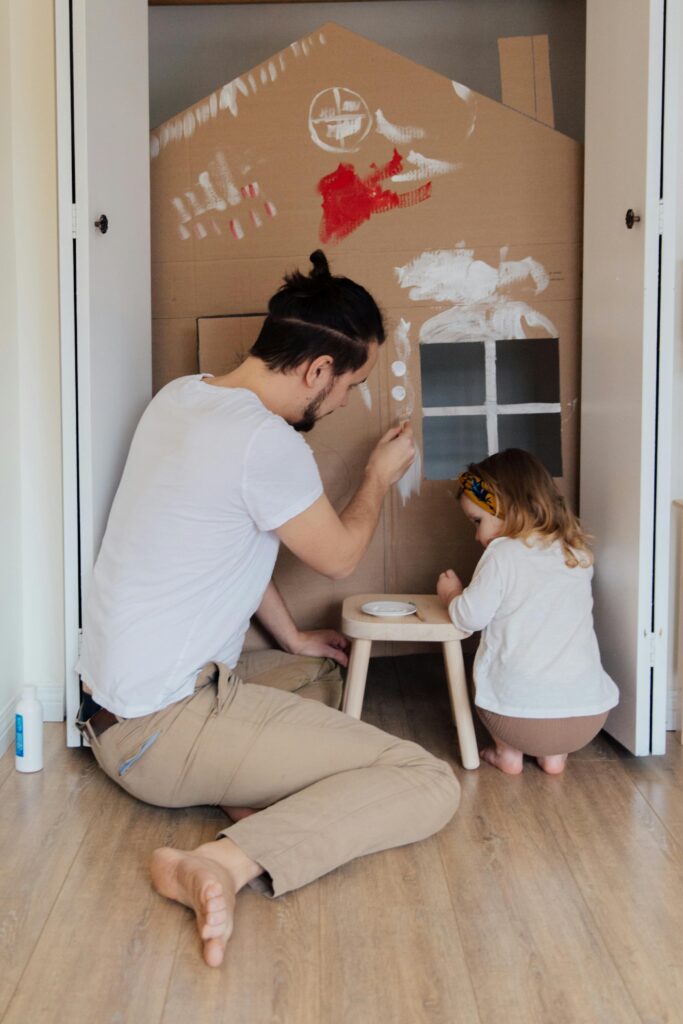
“When you apologize to your child, you don’t lose authority — you gain respect. You don’t lose power — you pass on healing.”
💔 Why Most Parents Struggle to Say “I’m Sorry”
We were raised to believe that apologizing = weakness.
That being a parent means being always right.
That admitting fault would make our children “lose respect.”
But that’s the lie of unhealed parenting.
The truth?
Children don’t need perfect parents — they need honest ones.
When you apologize:
You model humility
You restore emotional safety
You show them how to repair relationships — instead of run from them
🧠 What Happens in a Child’s Brain When You Apologize
When a child is hurt by your words or energy and doesn’t receive a repair:
Their nervous system stays in fight-or-flight
They internalize your behavior as their fault
They start believing: “I’m too much. I’m bad. I’m not lovable.”
But when you kneel and say, “I’m sorry…”
Their body softens
Their heart opens
Their trust deepens
They learn that love doesn’t mean perfection — it means truth
🌀 Ho’oponopono: The Sacred Apology Ritual
Traditional apologies are often intellectual:
“Sorry I yelled… but you shouldn’t have…”
This creates distance.
But Ho’oponopono goes deeper. It’s a soul-to-soul cleansing.
The 4 healing phrases are:
“I’m sorry.
Please forgive me.
Thank you.
I love you.”
When spoken from your heart — especially to your child —
they don’t just hear it… they feel it.
🧸 Real-Life Example
Imagine you lost your temper and shouted at your 6-year-old.
Instead of just giving them a snack and moving on…
You sit down, look them in the eye, and say:
“I want to tell you something important. I got angry and yelled, and that wasn’t fair to you.
I’m sorry.
Please forgive me.
Thank you for still hugging me.
I love you more than anything.”
Then… silence. Let your child respond.
That moment? It rewires their entire emotional blueprint.
💬 The Exact Script (Use This)
Here’s how to apologize like a cycle-breaker:
Step 1: Name What Happened (with ownership)
“I raised my voice and it hurt your feelings. That’s not okay.”
Step 2: Speak the Ho’oponopono Phrases
“I’m sorry.
Please forgive me.
Thank you for still loving me.
I love you.”
Step 3: Invite Emotion
“It’s okay if you feel sad or mad at me. I can hold that.”
Step 4: Reaffirm Unconditional Love
“Even when I make mistakes, I will always love you. And I will always try to do better.”
🧠 Pro Tip: Apologies Don’t Make You Small — They Make You Strong
A child who receives genuine apologies:
Learns to own their mistakes
Feels safe being imperfect
Doesn’t grow up with emotional tension in their chest
Trusts you more — not less
Repair creates resilience.
And trust isn’t built in moments of perfection — it’s built in moments of vulnerability.
🔁 But What If I Never Got That Growing Up?
Then this moment is your chance to give what you never got —
and in doing so, break the cycle right here, right now.
If apologizing feels hard, say it first to your Inner Child:
“I’m sorry for all the times no one saw your tears.
Please forgive me for abandoning your needs.
Thank you for still being here.
I love you.”
From that healed place…
you’ll find the strength to say it to your own child, too.
❤️ Final Thoughts
Children remember our apologies more than our punishments.
They remember:
How we made them feel
How we handled their pain
How we repaired the rupture
The deepest love isn’t found in saying “I love you” — it’s found in saying “I’m sorry” when it matters most.
Speak it. Mean it. Let it land.
And watch how your child’s heart opens in ways you never imagined.

